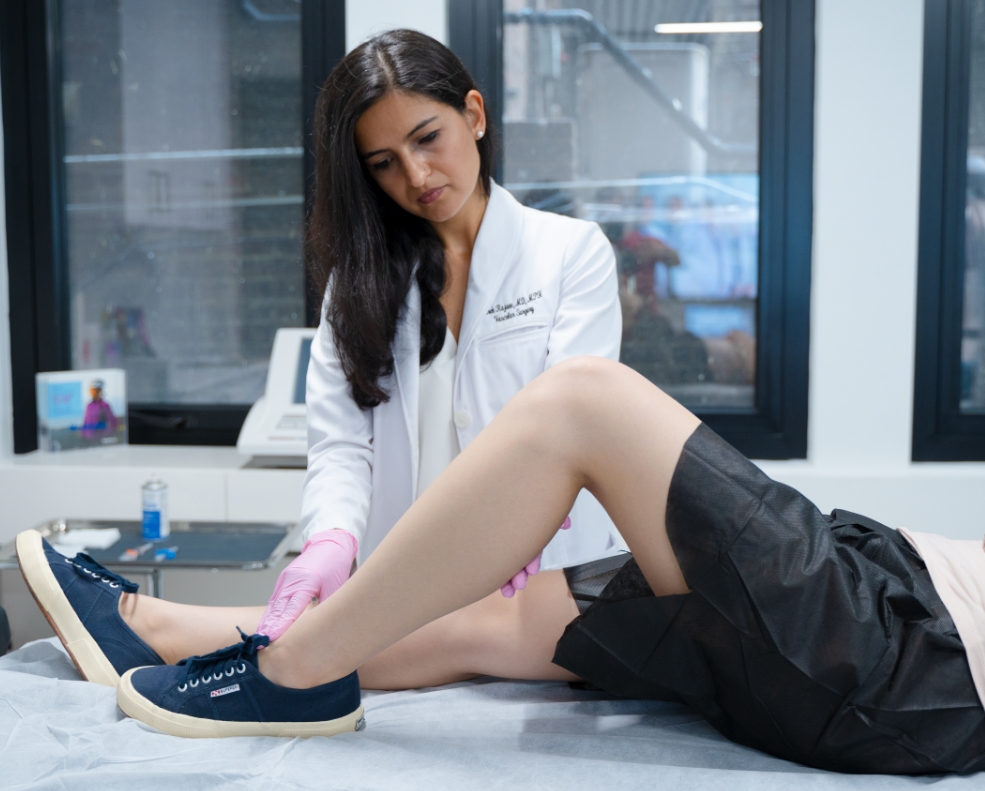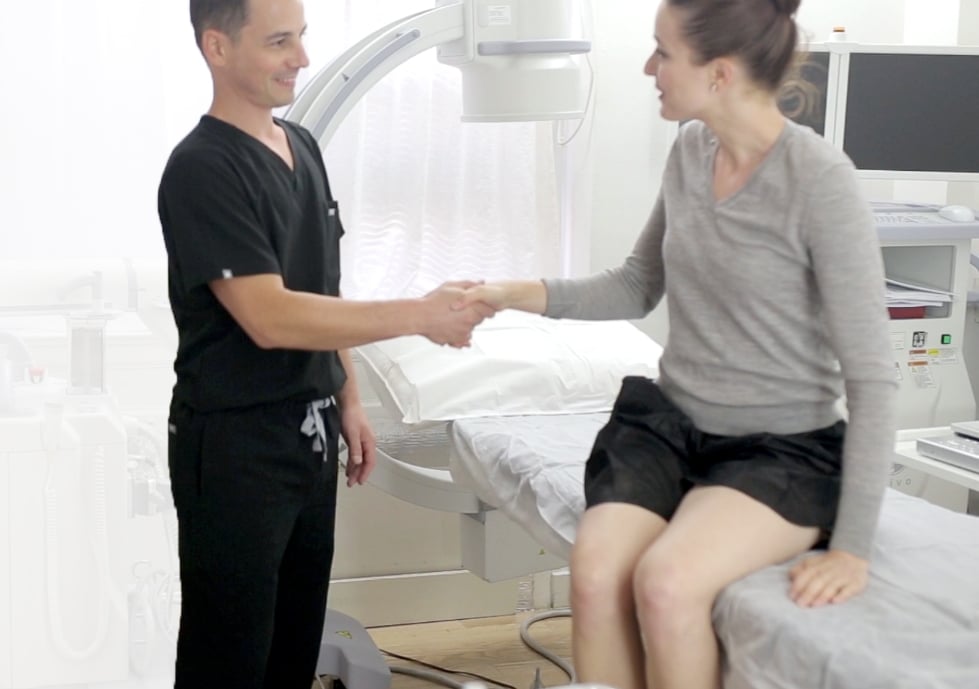What is a Vein Clinic and What Doctor Treats Varicose Veins?
Vein health is crucial for overall wellness, yet many people are unaware of the significance of maintaining healthy veins until issues arise. Two common questions are: "What is a vein clinic?" and "What doctor treats varicose veins?" This article aims to provide comprehensive answers to these questions, shedding light on the importance of vein clinics and the specialized care they offer.
What is a Vein Clinic?
A vein clinic is a specialized medical facility dedicated to the diagnosis and treatment of venous diseases and disorders. These clinics are staffed by experts in vascular health who focus on conditions such as varicose veins, spider veins, and other related issues.

Services Offered at Vein Clinics
Vein clinics offer a range of services tailored to treat venous conditions. These include:
1. Diagnostic Evaluations: Vein clinics provide comprehensive evaluations to diagnose venous diseases. This often involves ultrasound imaging, which helps in visualizing blood flow and identifying abnormalities.
2. Minimally Invasive Treatments: Advances in medical technology have led to the development of minimally invasive procedures for treating vein problems. Some of the common treatments offered include sclerotherapy, endovenous laser therapy (EVLT), and radiofrequency ablation (RFA). These procedures are less invasive than traditional surgery and usually require minimal downtime.
3. Surgical Interventions: In severe cases, vein clinics may offer surgical options such as vein stripping and ligation. These procedures are typically reserved for more advanced stages of venous disease.
4. Post-Treatment Care: Vein clinics also provide follow-up care to ensure successful recovery and prevent recurrence of venous issues. This may include lifestyle recommendations, compression therapy, and regular monitoring.
What Doctor Treats Varicose Veins?
Varicose veins are enlarged, twisted veins that often appear on the legs and can cause discomfort or pain. The specialist who treats varicose veins is typically a vascular surgeon or a phlebologist.
Vascular Surgeons
Vascular surgeons are medical doctors who specialize in diagnosing and treating diseases of the vascular system, which includes veins and arteries. They are highly trained in both surgical and non-surgical techniques to manage venous conditions.
1. Training and Expertise: Vascular surgeons undergo extensive training, including medical school, residency in general surgery, and fellowship in vascular surgery. This rigorous training equips them with the skills to handle complex venous conditions.
2. Treatment Options: Vascular surgeons are skilled in performing a variety of procedures to treat varicose veins. These range from minimally invasive techniques like EVLT and RFA to more extensive surgical interventions when necessary.
3. Comprehensive Care: Because vascular surgeons are trained in managing a broad spectrum of vascular diseases, they can provide comprehensive care, addressing not only varicose veins but also other related vascular issues.
Phlebologists
Phlebologists are doctors who specialize specifically in the diagnosis and treatment of venous disorders. They often come from various medical backgrounds, including dermatology, internal medicine, or surgery.
1. Specialized Focus: Unlike vascular surgeons, phlebologists focus exclusively on venous diseases. This specialized focus allows them to stay updated with the latest advancements in venous care.
2. Non-Surgical Treatments: Phlebologists often emphasize non-surgical treatments, using techniques such as sclerotherapy and laser treatments to manage varicose veins. They are experts in these procedures, ensuring effective and safe outcomes for patients.
3. Patient-Centered Approach: Phlebologists typically adopt a patient-centered approach, considering the individual needs and preferences of each patient when developing a treatment plan. This personalized care can enhance the overall treatment experience and outcomes.
Understanding Varicose Veins
To fully appreciate the role of vein clinics and the doctors who treat varicose veins, it's important to understand what varicose veins are and why they occur.
Causes of Varicose Veins
Varicose veins develop when the valves in the veins that regulate blood flow become weak or damaged. This leads to blood pooling in the veins, causing them to enlarge and become twisted. Several factors can contribute to the development of varicose veins, including:
1. Genetics: A family history of varicose veins can increase your risk of developing the condition.
2. Age: As you age, the valves in your veins may weaken, increasing the likelihood of varicose veins.
3. Gender: Women are more prone to varicose veins due to hormonal changes during pregnancy, menopause, and menstruation.
4. Lifestyle Factors: Prolonged standing or sitting, lack of exercise, and obesity can all contribute to the development of varicose veins.
5. Medical Conditions: Certain medical conditions, such as chronic venous insufficiency, can also lead to varicose veins.
Symptoms of Varicose Veins
Varicose veins can cause a range of symptoms, from cosmetic concerns to significant discomfort. Common symptoms include:
1. Visible Veins: Enlarged, twisted veins that are often blue or dark purple in color.
2. Pain and Discomfort: Aching, throbbing, or a heavy feeling in the legs.
3. Swelling: Swelling in the lower legs and ankles.
4. Itching and Skin Changes: Itching around the veins and changes in skin color or texture.
5. Ulcers: In severe cases, varicose veins can lead to ulcers or sores on the skin.
Treatment Options for Varicose Veins
Treating varicose veins involves addressing both the symptoms and the underlying causes. The treatment plan will depend on the severity of the condition and the patient's overall health.
Conservative Treatments
For mild cases of varicose veins, conservative treatments may be sufficient to manage symptoms and prevent progression. These include:
1. Compression Stockings: Wearing compression stockings can help improve blood flow and reduce swelling.
2. Lifestyle Changes: Regular exercise, maintaining a healthy weight, and avoiding prolonged periods of standing or sitting can help alleviate symptoms.
3. Elevation: Elevating the legs can reduce swelling and improve circulation.
Minimally Invasive Procedures
For more severe cases, minimally invasive procedures are often recommended. These procedures are performed on an outpatient basis and involve minimal downtime.
1. Sclerotherapy: This procedure involves injecting a solution into the affected veins, causing them to collapse and fade over time.
2. Endovenous Laser Therapy (EVLT): EVLT uses laser energy to close off varicose veins, redirecting blood flow to healthier veins.
3. Radiofrequency Ablation (RFA): RFA uses radiofrequency energy to heat and seal off varicose veins.
4. Ambulatory Phlebectomy: This procedure involves removing small varicose veins through tiny incisions in the skin.
Surgical Options
In severe cases where minimally invasive procedures are not effective, surgical options may be necessary.
1. Vein Stripping and Ligation: This procedure involves tying off and removing large varicose veins through small incisions.
2. Endoscopic Vein Surgery: In this procedure, a small camera is used to visualize and remove varicose veins from within.
Choosing the Right Vein Clinic and Doctor
Selecting the right vein clinic and doctor is crucial for effective treatment and optimal outcomes. Here are some factors to consider when making your choice:
Experience and Credentials
Ensure that the clinic and doctor have the necessary experience and credentials in treating venous diseases. Look for board certification and specialized training in vascular surgery or phlebology.
Range of Services
Choose a clinic that offers a comprehensive range of services, from diagnostic evaluations to advanced treatment options. This ensures that you receive personalized care tailored to your specific needs.
Patient Reviews and Testimonials
Reading patient reviews and testimonials can provide insights into the quality of care and patient satisfaction at the clinic. Look for positive feedback regarding the expertise of the doctors, the effectiveness of treatments, and the overall patient experience.
Consultation and Communication
A good vein clinic should offer thorough consultations and clear communication. The doctor should take the time to explain your condition, discuss treatment options, and address any concerns or questions you may have.
Conclusion
Understanding "What is a vein clinic?" and "What doctor treats varicose veins?" is essential for anyone experiencing venous issues. Vein clinics play a vital role in diagnosing and treating varicose veins and other venous conditions, offering a range of services from conservative treatments to advanced minimally invasive procedures. Whether you choose a vascular surgeon or a phlebologist, selecting a qualified and experienced specialist is key to achieving successful outcomes and improving your vein health. If you have concerns about your veins, don't hesitate to seek professional help and take proactive steps towards better vascular wellness.

Comments
Post a Comment